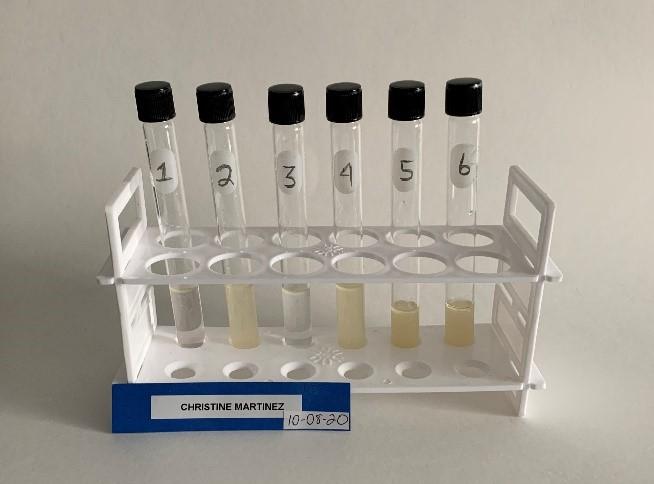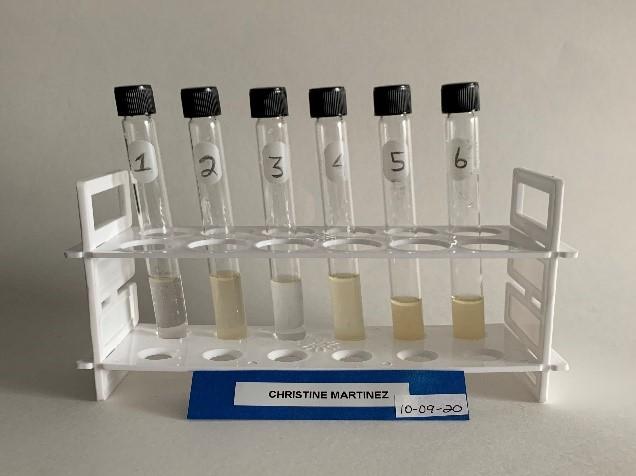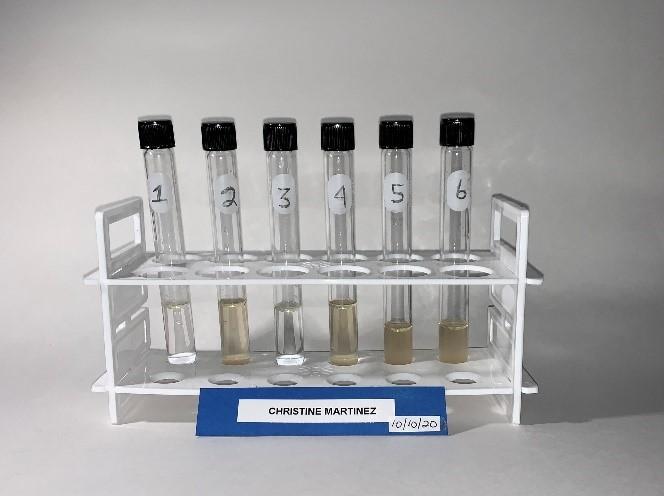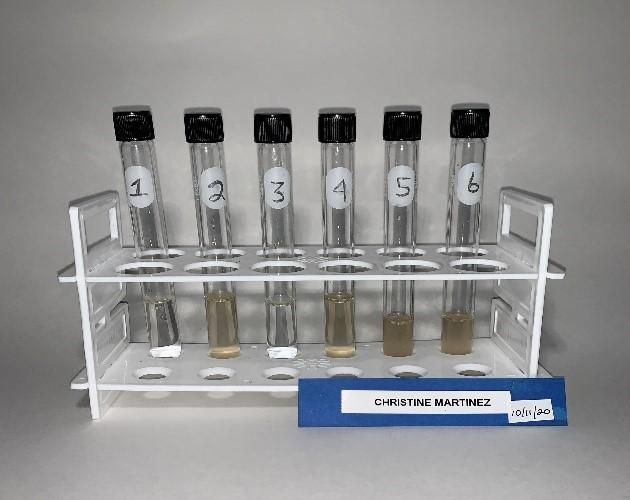Introduction
Water and oil do not mix; instead, oil congeals into thick sludge. According to Tang et al. (2019), oil spills can harm the environment and marine life. When oil is released into the ocean, it can poison local marine creatures and harm their immunological, reproductive, and respiratory systems. The goal of the laboratory is to simulate the process of bioremediation, which involves using living organisms to remove environmental contaminants from a contaminated area. The lab’s objective is to explore the potential for bioremediation to reduce ocean pollution.
Tetrazolium will not affect the color of the liquid in tube 1 because it contains a large volume of water and a relatively small amount of oil and tetrazolium. In tube 2, adding a microbial solution to the tetrazolium, water, and oil may result in an unclear chemical reaction. Tube 3, which contains a mixture of water and oil, will show the oil separating from the water and the bulk of the liquid remaining clear, as oil and water do not mix. In tube 4, a microbial solution in the mixture of water, oil, and a microbial solution will cause the oil to be broken down, resulting in a color change. If tube 5, which contains a mixture of water, oil, and a microbial suspension, is kept in a warmer temperature setting, the oil breakdown by the microbial solution will occur more quickly. In contrast, if the same mixture is kept at a cooler temperature in tube 6, the breakdown process will proceed more slowly.
Results
Data Table 1: Tubes 1 and 2 Observations
Data Table 2: Tubes 3 and 4 Observations
Data Table 3: Tubes 5 and 6 Observations
Photographs




Analysis
Tube 1 contained 1 mL of tetrazolium, 4 mL of distilled water, and ten drops of oil. The hypothesis was that the high concentration of water would prevent any color change. The results showed that the liquid remained clear, supporting the hypothesis. Tube 2 contained 1 mL of tetrazolium, 2 mL of distilled water, ten drops of oil, and 2 mL of microbial solution. The hypothesis was that the addition of the microbial solution would cause the color to shift. The results showed that the liquid became turbid with a yellow tinge, supporting the hypothesis.
Tube 3 contained a mixture of water and oil. The hypothesis was that the oil would separate from the water and the liquid would remain clear. The results showed that the oil did not mix with the water, and the liquid remained clear, supporting the hypothesis. Tube 4 was at a normal temperature, tube five was at a higher temperature, and tube six was at a lower temperature. The results showed that the higher temperature in tube 5 led to a faster breakdown of the microorganisms, resulting in a less murky liquid. The lower temperature in tube 6 slowed down the breakdown of the microorganisms, resulting in the liquid remaining the darkest by day 4.
Conclusion
The lab had a lot of insight into oil spills directly related to the real world. Bioremediation is a cost-effective, effective, and ecologically benign method for cleaning up both on- and offshore oil spills (Nadhirawaty & Titah, 2019). The Exxon Valdez and Deepwater Horizon oil disasters both successfully used microorganisms to digest petroleum hydrocarbons, reducing environmental damage. Microorganisms were deployed in both oil disasters to digest petroleum hydrocarbons, lessening the environmental damage.
This lab had fewer challenges to overcome since it was quite straightforward. It was challenging to monitor over several days when the drinks appeared almost identical since it made it difficult to describe any distinctions. There are drawbacks that bioremediation has in terms of dealing with oil spills. These are approached by creating a new lab experiment involving adding common household substances individually into several test tubes.
References
Nadhirawaty, R., & Titah, H. S. (2019). Simultaneous Bioaugmentation and Biostimulation to Remediate Soil Contaminated by Ship Dismantling in Bangkalan District, Indonesia. Journal of Health and Pollution, 9(24). Web.
Tang, D., Sun, J., Zhou, L., Wang, S., Singh, R. P., & Pan, G. (2019). Ecological response of phytoplankton to the oil spills in the oceans. Geomatics, Natural Hazards and Risk, 10(1), 853–872. Web.